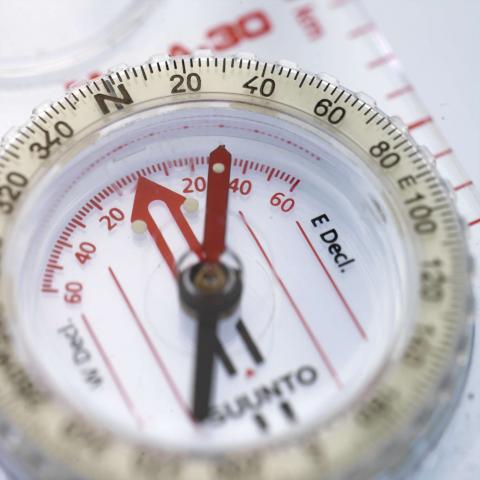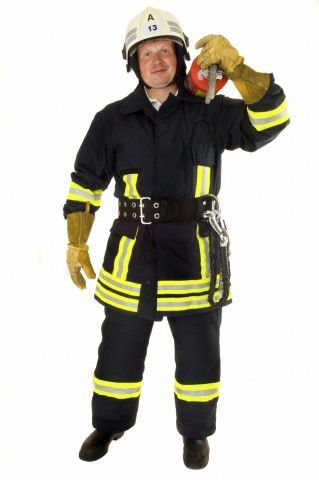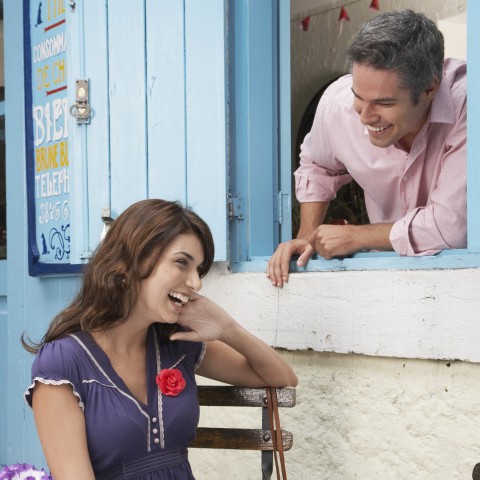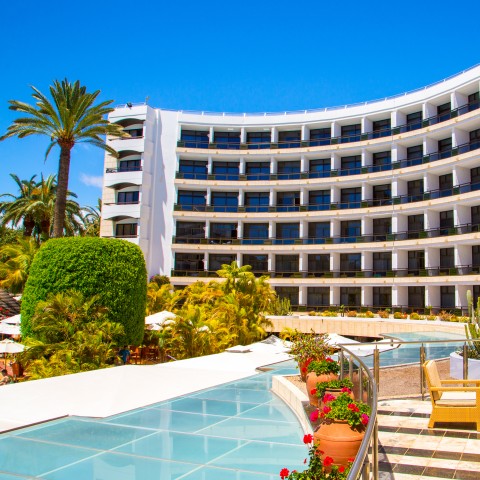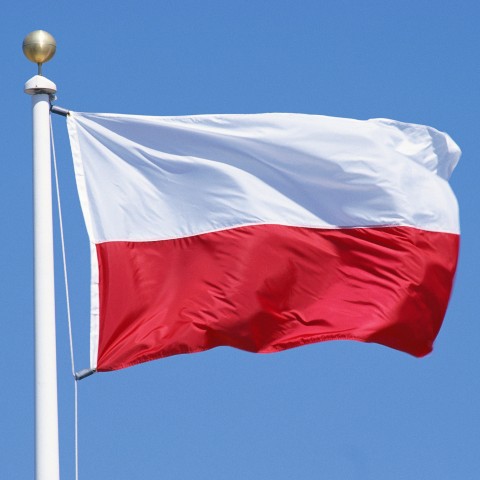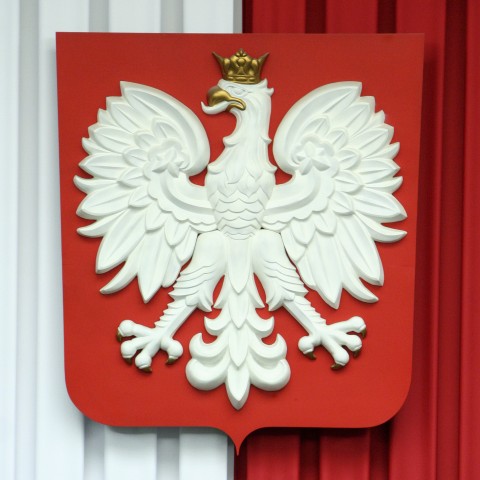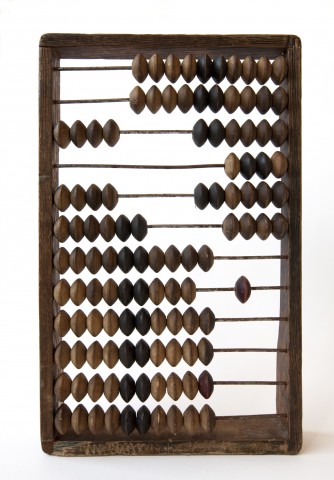
You’re learning to speak Polish, and it’s going well. Your confidence is growing! So much so that you feel ready to share your experiences on social media—in Polish.
At Learn Polish, we make this easy for you to get it right the first time. Post like a boss with these phrases and guidelines, and get to practice your Polish in the process.

1. Talking about Your Restaurant Visit in Polish
Eating out is fun, and often an experience you’d like to share. Take a pic, and start a conversation on social media in Polish. Your friend will be amazed by your language skills…and perhaps your taste in restaurants!
Maciek eats at a restaurant with his friends, posts an image of his food, and leaves this comment:

POST
Let’s break down Maciek’s post.
Obiadek na mieście. Nie ma to jak dobry schabowy!
“Eating out. There is nothing like a good pork cutlet.”
1- Obiadek na mieście.
First is an expression meaning “Eating out.”
In this phrase “dinner” is a diminutive. The latter part literally means “on the town” and is used whenever you go out to eat, do some shopping or run some errands.
2- Nie ma to jak dobry schabowy!
Then comes the phrase – “There is nothing like a good pork cutlet.”
You can use the phrase “there is nothing like a” when saying that something is good and usually traditional. This phrase is very nostalgic. “Pork cutlets” are arguably one of the most traditional Polish dishes, and the first dish a Polish person will miss when traveling abroad.
COMMENTS
In response, Maciek’s friends leave some comments.
1- Baw się dobrze!
His neighbor, Ola, uses an expression meaning – “Have a good time!”
This is a warmhearted wish for a good time.
2- Mniam, aż mi ślinka leci!
His college friend, Tomek, uses an expression meaning – “Yummy, my mouth is watering!”
Tomek expresses a personal opinion about an observation – always a conversation starter!.
3- Wygląda apetycznie.
His supervisor, Bartek, uses an expression meaning – “This looks delicious.”
Another positive comment, Maciek’s supervisor wishes to be part of the conversation.
4- Ślinotok…
His girlfriend’s high school friend, Ania, uses an expression meaning – “Mouth watering.”
Ania shares everyone’s sentiments in a short and sweet comment.
VOCABULARY
Find below the key vocabulary for this lesson:
miasto (city): “city”
bawić się (“enjoy, have fun, play” ): “enjoy, have fun, play”
ślina: “saliva”
apetycznie: “invitingly (about food)”
ślinotok: “salivation”
wyglądać (to look): “to look like”
mniam: “yummy”
So, let’s practice a bit. If a friend posted something about having dinner with friends, which phrase would you use?
Now go visit a Polish restaurant, and wow the staff with your language skills!
2. Post about Your Mall Visit in Polish
Another super topic for social media is shopping—everybody does it, most everybody loves it, and your friends on social media are probably curious about your shopping sprees! Share these Polish phrases in posts when you visit a mall.
Kasia shop with her sister at the mall, posts an image of it, and leaves this comment:

POST
Let’s break down Kasia’s post.
Na doła najlepsze są zakupy.
“When you are down, shopping is the best medicine.”
1- Na doła
First is an expression meaning “when you are down.”
Literally, this expression means “in a pit,” but it’s similar to the English phrase “to be down,” suggesting that the downward direction is generally associated with “bad moods” across different cultures and languages.
2- najlepsze są zakupy
Then comes the phrase – “shopping is the best.”
Here we have the plural form of the verb ‘to be,’ because the noun ‘shopping’ doesn’t have a singular form in Polish.
COMMENTS
In response, Kasia’s friends leave some comments.
1- Tylko wszystkiego nie wydaj.
Her boyfriend, Maciek, uses an expression meaning – “Just don’t spend all your money.”
Maciek enters the conversation with a realistic bit of advice.
2- Dobrze, że nie wzięłaś mojej Magdy ze sobą.
Her boyfriend’s college friend, Tomek, uses an expression meaning – “It’s good you didn’t take my Magda with you.”
This is a comment with personal details known possibly only to Kasia and Maciek’s friend Tomek. We assume he’s referring here to his girlfriend or wife. This type of comment could well elicit a response from the poster, encouraging conversation.
3- Jak szaleć to na całego.
Her high school friend, Ania, uses an expression meaning – “When you go crazy, you shouldn’t hold yourself back.”
Different from Maciek, Ania feels Kasia should not be limited in her spending. This type of commenting can evoke participation – a nice way to keep a thread alive!
4- Świetna ta spódnica!
Her boyfriend’s high school friend, Ula, uses an expression meaning – “This is a great skirt!”
Ula expresses appreciation for something he observes in the photo.
VOCABULARY
Find below the key vocabulary for this lesson:
na doła: “when feeling down”
tylko (just, only): “just, only”
wziąć: “to take “
szaleć (“get crazy, get mad, rock” ): “get crazy, get mad, rock”
świetny (great): “great”
spódnica (“skirt” ): “skirt”
zakupy: “shopping”
So, if a friend posted something about going shopping, which phrase would you use?
3. Talking about a Sport Day in Polish
Sports events, whether you’re the spectator or the sports person, offer fantastic opportunity for great social media posts. Learn some handy phrases and vocabulary to start a sport-on-the-beach conversation in Polish.
Maciek goes to the gym, posts an image of it, and leaves this comment:

POST
Let’s break down Maciek’s post.
Nie ma jak siłka po pracy.
“There is nothing better than hitting the gym after work.”
1- Nie ma jak
First is an expression meaning “There is nothing like.”
This expression literally means “There is nothing like.” One can use it to express that they believe something is great and enjoyable.
2- siłka po pracy
Then comes the phrase – “gym after work.”
The first part of this expression is a less formal way of saying “gym”. This word comes from “force, strength.” The second part means “after work.”
COMMENTS
In response, Maciek’s friends leave some comments.
1- Podziwiam…
His neighbor, Ola, uses an expression meaning – “I admire you…”
This is a compliment, and will always go down well on a thread!
2- Wysiłek fizyczny jest bardzo ważny dla zdrowia.
His supervisor, Bartek, uses an expression meaning – “Exercising is very important for your health.”
Bartek sounds a bit like a parent or an uncle with this advice – all in good spirit, though, and not inappropriate.
3- Wreszcie się wujek wziął za ten brzuszek piwny.
His girlfriend’s nephew, Franek, uses an expression meaning – “Finally, you (uncle) took care of your beer belly.”
Franek is maybe a bit young, so he uses sarcasm in an attempt to be humorous. Or perhaps this is the way he and Maciek banter with each other! Unless you know the poster well, or it is part of thread’s general style, criticizing someone’s appearance on social media could be disastrous.
4- Napisz lepiej ile wytrzymałeś?
His college friend, Tomek, uses an expression meaning – “Better write down how long you lasted.”
This comment is similar in feel to Franek’s, so perhaps this is the way the males joke around with each other!
VOCABULARY
Find below the key vocabulary for this lesson:
siłka: “gym”
podziwiać: “to admire”
ważny: “important”
wziąć się za: “to start dealing with (a problem)”
wytrzymać: “withstand”
ile (How many?): “How many?”
napisać (“to write; to write down” ): “to write, to write down”
Which phrase would you use if a friend posted something about sports?
But sport is not the only thing you can play! Play some music, and share it on social media.
4. Share a Song on Social Media in Polish
Music is the language of the soul, they say. So, don’t hold back—share what touches your soul with your friends!
Kasia listens to her favorite music, posts a link to a song, and leaves this comment:

POST
Let’s break down Kasia’s post.
No taką muzykę to ja lubię…
“Well, this kind of music I do like!”
1- No taką muzykę
First is an expression meaning “Well, such a music.”
The first part is a very useful expression meaning “Well such a.” It is usually followed by a positive statement with a noun at the front (here “music” ) in the accusative form.
2- to ja lubię
Then comes the phrase – “this I like .”
By using an inversion in this sentence (putting “this” at the beginning), the statement becomes stronger. It’s important to use it in this order because it connects the previous part.
COMMENTS
In response, Kasia’s friends leave some comments.
1- Fajne to.
Her neighbor, Ola, uses an expression meaning – “Cool.”
Short and sweet, there’s no doubt how this poster feels about the song.
2- Przypomina mi się nasz pierwszy taniec…
Her boyfriend, Maciek, uses an expression meaning – “It reminds me of our first dance.”
The music makes Maciek nostalgic and feeling a bit romantic – always good to share positive memories on a friend’s feed!
3- Z tego, co pamiętam, to leciało na naszej studniówce.
Her high school friend, Ania, uses an expression meaning – “(As far) as I remember, they played this song at our prom.”
Ania has different but nevertheless positive memories of this song.
4- Maciek, jaki z Ciebie romantyk!
Her boyfriend’s high school friend, Ula, uses an expression meaning – “Maciek, what a romantic guy you are!”
Excellent! Ula is responding not to Kasia’s post, but Maciek’s, which means the conversation is alive! The comment is playful and harmless.
VOCABULARY
Find below the key vocabulary for this lesson:
muzyka (music): “music”
fajne: “cool”
przypominać się: “remind of”
pamiętać (to remember): “remember “
romantyk: “romantic person”
jaki (what…like, what (describing masculine nouns)): “what…like, what (describing masculine nouns)”
studniówka: “prom”
Which song would you share? And what would you say to a friend who posted something about sharing music or videos?
Now you know how to start a conversation about a song or a video on social media!
5. Polish Social Media Comments about a Concert
Still on the theme of music—visiting live concerts and shows just have to be shared with your friends. Here are some handy phrases and vocab to wow your followers in Polish!
Maciek goes to see a concert with his friends, posts an image of the band, and leaves this comment:

POST
Let’s break down Maciek’s post.
Dają czadu!
“They rock!”
1- dają
First is an expression meaning “they give.”
This is the plural form of “to give,” but in this phrase it means more like “show.” The whole phrase is a set expression, so one cannot change the verb or the noun.
2- czadu
Then comes the phrase – “rock, power.”
This word, meaning “power,” or just “rock,” is used as a set with the previous verb to form the phrase “They rock.” It is usually used by young people.
COMMENTS
In response, Maciek’s friends leave some comments.
1- Miłej zabawy!
His neighbor, Ola, uses an expression meaning – “Have fun!”
This is a warmhearted wish from Ola which is commonly used this way.
2- Zazdroszczę!
His girlfriend’s high school friend, Ania, uses an expression meaning – “I envy you!”
Ania clearly wishes she was part of the fun.
3- Nie najgorszy ten zespół.
His college friend, Tomek, uses an expression meaning – “This band isn’t too bad.”
Tomek shares a personal opinion about the band. He’s not raving about them, but he doesn’t dislike them either, so he’s feelings about them are mild.
4- Tylko nie wróć za późno.
His girlfriend, Kasia, uses an expression meaning – “Just don’t come back too late.”
Girlfriends! Perhaps she is concerned because he has to work tomorrow…or she just misses him.
VOCABULARY
Find below the key vocabulary for this lesson:
czad: “coolness”
zabawa: “fun”
zazdrościć: “envy”
zespół (“band, team” ): “band, team”
wrócić: “come back”
za (behind): “too”
późno: “late”
If a friend posted something about a concert, which phrase would you use?
6. Talking about an Unfortunate Accident in Polish
Oh dear. You broke something by accident. Use these Polish phrases to start a thread on social media. Or maybe just to let your friends know why you are not contacting them!
Kasia has broken her iPhone’s screen, posts an image of it, and leaves this comment:

POST
Let’s break down Kasia’s post.
I po iPhonie…
“And that’s it for my iPhone.”
1- I
First is an expression meaning “and.”
This conjunction is usually translated to “and” in English. In Polish it is usually used to connect two nouns rather than two sentences. Here, it starts the phrase, which means that there was something before that (but we don’t know what).
2- po iPhonie
Then comes the phrase – “that’s it for my iPhone..”
This literally means “after iPhone,” but this kind of expression is used to say that an event is over or, like in this case, that something is not working anymore. Notice that “iPhone” is a word that came from English; however, Poles like to change the endings depending on the grammatical case being used.
COMMENTS
In response, Kasia’s friends leave some comments.
1- Zawsze możesz wymienić ekran.
Her neighbor, Ola, uses an expression meaning – “You can always replace the screen. ”
Ola has practical advice for Kasia.
2- I po co szajsfona kupowałaś?
Her boyfriend’s college friend, Tomek, uses an expression meaning – “And why did you buy the Not-So-Good-Phone?”
Tomek is probably not a fan of iPhones! This is a harmless comment which could elicit conversation about phone preferences.
3- Głowa do góry! Ważne, że działa!
Her boyfriend’s high school friend, Ula, uses an expression meaning – “Cheer up! It works and that’s what’s important!”
Ula also points out a positive aspect to Kasia’s situation.
4- A mówiłem cioci, żeby uważała.
Her nephew, Franek, uses an expression meaning – “I told you, auntie, that you should be careful.”
Franek sounds like Kasia’s mother! This type of comment can be playful and joking too.
VOCABULARY
Find below the key vocabulary for this lesson:
po (in): “after”
ekran: “screen”
szajsfon: “smartphone (slang)”
głowa (head): “head”
ciocia: “auntie”
żeby: “so that”
uważać (“to consider” ): “to consider”
If a friend posted something about having broken something by accident, which phrase would you use?
So, now you know how to discuss an accident in Polish. Well done!
7. Chat about Your Boredom on Social Media in Polish
Sometimes, we’re just bored with how life goes. And to alleviate the boredom, we write about it on social media. Add some excitement to your posts by addressing your friends and followers in Polish!
Maciek is bored, posts an appropriate selfie, and leaves this comment:

POST
Let’s break down Maciek’s post.
Umieram z nudów…
“I’m dying of boredom…”
1- umieram z
First is an expression meaning “I’m dying from.”
Poles love to complain, and one of the ways of doing that is by using this phrase. Note that the word that follows will be always a noun.
2- nudów
Then comes the phrase – “boredom.”
“Boredom” is a plural noun, which doesn’t have a singular form. In this phrase, it’s in the genitive case because the first part requires it.
COMMENTS
In response, Maciek’s friends leave some comments.
1- Może coś obejrzysz?
His neighbor, Ola, uses an expression meaning – “Maybe you should watch something?”
Ola offers advice again, eager that Maciek doesn’t suffer!
2- Posprzątaj mi pokój!
His college friend, Tomek, uses an expression meaning – “Clean up my room!”
Tomek has practical advice as well, but he is most probably joking around.
3- Inteligentni ludzie się nigdy nie nudzą.
His girlfriend’s high school friend, Ania, uses an expression meaning – “Intelligent people are never bored.”
Ania is stepping on thin ice! She probably has a very good relationship with Maciek, or this could sound like criticism. She is probably joking and wanting to draw him out.
4- Jest fajna pogoda, może pójdziesz na spacer?
His girlfriend, Kasia, uses an expression meaning – “It’s nice weather. Maybe go for walk?”
Kasia offers practical, down-to-earth advice.
VOCABULARY
Find below the key vocabulary for this lesson:
umierać: “die”
coś (anything; something): “anything; something”
pokój (room): “room”
nudzić się: “be bored”
fajna: “cool”
pogoda (weather): “weather”
spacer (“walk” ): “walk”
nuda: “boredom”
If a friend posted something about being bored, which phrase would you use?
Still bored? Share another feeling and see if you can start a conversation!
8. Exhausted? Share It on Social Media in Polish
Sitting in public transport after work, feeling like chatting online? Well, converse in Polish about how you feel, and let your friends join in!
Kasia is exhausted after work, posts an image of herself looking dog-tired, and leaves this comment:

POST
Let’s break down Kasia’s post.
Padam… Nóg nie czuję.
“I’m dying… I don’t feel my legs.”
1- Padam…
First is an expression meaning “I’m dying….”
This literally means “I’m falling down” and is very often used to communicate that one is so tired that he or she cannot stand anymore.
2- Nóg nie czuję.
Then comes the phrase – “I don’t feel my legs..”
This is yet another very common phrase to complain about being tired, especially after walking a lot.
COMMENTS
In response, Kasia’s friends leave some comments.
1- Kolacja czeka.
Her boyfriend, Maciek, uses an expression meaning – “Dinner’s waiting.”
Maciek is being supportive and encouraging – a sweet comment from a boyfriend. Kasia can look forward to a welcoming home.
2- Masaż?
Her neighbor, Ola, uses an expression meaning – “Massage?”
Is Ola offering a massage or is she making a suggestion? Only she and Kasia will know!
3- Nie przepracowuj się tak.
Her high school friend, Ania, uses an expression meaning – “Don’t work too hard.”
Ania is showing her sympathy with Kasia’s predicament, offering caring advice.
4- Weź gorącą kąpiel.
Her boyfriend’s high school friend, Ula, uses an expression meaning – “Take a hot bath.”
Yet more advice – Kasia has a whole list of things she could do at home to feel better!
VOCABULARY
Find below the key vocabulary for this lesson:
padać (“to fall (of atmospheric precipitation)” ): “to fall (of atmospheric precipitation)”
kolacja: “supper”
masaż: “massage”
przepracowywać się: “work too hard”
kąpiel: “bath”
brać kąpiel: “take a bath”
czekać (“wait” ): “wait”
czuć: “feel”
If a friend posted something about being exhausted, which phrase would you use?
Now you know how to say you’re exhausted in Polish! Well done.
9. Talking about an Injury in Polish
So life happens, and you manage to hurt yourself during a soccer game. Very Tweet-worthy! Here’s how to do it in Polish.
Maciek has broken his leg, posts an image of it, and leaves this comment:

POST
Let’s break down Maciek’s post.
No i noga w gipsie.
“And a leg in a cast!”
1- no i
First is an expression meaning “and .”
Yet another way of saying “and.” It is used mostly at the beginning of a sentence and is closer in meaning to “and then” or “and finally.”
2- noga w gipsie.
Then comes the phrase – “a leg in the cast.”
This expression literally means “a leg in a cast.” Note that the first part meaning “leg” can be changed to any body part without having to change the latter part.
COMMENTS
In response, Maciek’s friends leave some comments.
1- Daj się podpisać!
His girlfriend’s high school friend, Ania, uses an expression meaning – “Let me sign it for you!”
Ania chooses to respond positively to this shocking news. Perhaps she already knew?
2- Jak to zrobiłeś?
His girlfriend, Kasia, uses an expression meaning – “How did you do that?”
Well, Kasia learns about this only now, and she is curious as to how he injured himself.
3- Zdrowiej szybko!
His high school friend, Ula, uses an expression meaning – “Get well soon!”
This is a traditional, often-used comment to wish someone good health.
4- Spokojna głowa, dasz radę!
His college friend, Tomek, uses an expression meaning – “No worries, you’ll manage!”
Tomek feels confident that Maciek won’t suffer too much.
VOCABULARY
Find below the key vocabulary for this lesson:
noga (“leg” ): “leg”
podpisać: “sign”
zrobić (“to take (pictures only); to do, to make” ): “to take (pictures only); to do, to make”
szybko (fast): “fast”
spokojny: “peaceful”
głowa (head): “head”
dać radę: “keep going, manage”
gips: “cast”
If a friend posted something about being injured, which phrase would you use?
We love to share our fortunes and misfortunes; somehow that makes us feel connected to others.
10. Starting a Conversation Feeling Disappointed in Polish
Sometimes things don’t go the way we planned. Share your disappointment about this with your friends!
Kasia is disappointed that it’s raining, posts an image of it pouring down, and leaves this comment:

POST
Let’s break down Kasia’s post.
Nie znoszę deszczu…
“I hate rain…”
1- nie znoszę
First is an expression meaning “I can’t stand.”
This is a relatively strong way to say that one hates something. You can use a softer expression, but this one sounds better when complaining about the rain.
2- deszczu
Then comes the phrase – “rain.”
“Rain” is in the genitive case. You have to use this case because the whole sentence is a negation.
COMMENTS
In response, Kasia’s friends leave some comments.
1- My na wakacjach i też pada.
Her neighbor, Ola, uses an expression meaning – “We’re on vacation and it’s also raining.”
Ola is sharing Kasia’s sentiments and shares a personal detail – a good way to keep a conversation going on a thread!
2- Głowa do góry!
Her high school friend, Ania, uses an expression meaning – “Cheer up!”
Ania has short and bold advice for the situation.
3- My jesteśmy w Indonezji i na pogodę nie narzekamy.
Her supervisor, Bartek, uses an expression meaning – “We’re in Indonesia, and we can’t complain about the weather.”
Bartek is luckier; he shares this with a personal detail.
4- Ja też nie.
Her boyfriend, Maciek, uses an expression meaning – “Me neither.”
Use this expression to show you are feeling determined.
VOCABULARY
Find below the key vocabulary for this lesson:
znosić: “put up with”
wakacje: “vacation”
do (to, until): “to, until”
narzekać: “complain”
też (also, too): “also, too”
góra (mountain): “up, upwards”
pogoda (weather): “weather”
deszcz (rain): “rain”
How would you comment in Polish when a friend is disappointed?
Not all posts need to be about a negative feeling, though!
11. Talking about Your Relationship Status in Polish
Don’t just change your relationship status in Settings, talk about it!
Maciek ask Kasia to be his girlfriend, posts an image of them together, and leaves this comment:

POST
Let’s break down Maciek’s post.
Moja druga połówka…
“My other half…”
1- moja
First is an expression meaning “my.”
This form of “my” is used only when referring to a feminine noun. For masculine and neuter nouns one would have to change the ending.
2- druga połówka
Then comes the phrase – “second half.”
One can use “second half” to refer to a loved one, or to put it simply, to their “other half”.
COMMENTS
In response, Maciek’s friends leave some comments.
1- Gratulacje!
His girlfriend’s high school friend, Ania, uses an expression meaning – “Congratulations!”
This traditional comment on any news of this nature is commonly and widely used.
2- Nareszcie!
His high school friend, Ula, uses an expression meaning – “It’s high time!”
Ula probably saw this relationship coming! Hers is a positive comment in this context.
3- Super.
His neighbor, Ola, uses an expression meaning – “Super.”
Ola also thinks this is good news and says so with a short and sweet comment.
4- Łał!
His college friend, Tomek, uses an expression meaning – “Wow!”
Tomek is also amazed, also keeping his comment short.
VOCABULARY
Find below the key vocabulary for this lesson:
moja: “my”
gratulacje: “congratulations”
nareszcie: “finally”
super (super): “super”
łał: “wow”
druga (“second” ): “second”
połówka: “half”
What would you say in Polish when a friend changes their relationship status?
Being in a good relationship with someone special is good news – don’t be shy to spread it!
12. Post about Getting Married in Polish
Wow, so things got serious, and you’re getting married. Congratulations! Or, your friend is getting married, so talk about this in Polish.
Kasia gets married, posts an image of it, and leaves this comment:

POST
Let’s break down Kasia’s post.
Z moim jedynym.
“With my one and only.”
1- z moim
First is an expression meaning “with my.”
“With my” suggests that the object of the sentence is a man or another masculine noun. For a woman you would have to change the ending.
2- jedynym
Then comes the phrase – “only, sole.”
“Only” here is really more like “the only one”. It will always refer to a man. For a woman you would have to change the ending.
COMMENTS
In response, Kasia’s friends leave some comments.
1- Moja żona.
Her husband, Maciek, uses an expression meaning – “My wife.”
Sometimes, less is more, and Maciek is clearly very proud to call Kasia his wife. His short, sweet comment speaks volumes!
2- Szybcy jesteście.
Her high school friend, Ania, uses an expression meaning – “You guys are fast.”
Ania makes an observation that could be neutral or loaded in nature, depending on the personal context.
3- Tak się cieszę!
Her husband’s high school friend, Ula, uses an expression meaning – “I’m so happy!”
Ula is clearly very happy about this marriage.
4- Serdecznie Wam gratuluję.
Her supervisor, Bartek, uses an expression meaning – “I would like to congratulate you.”
Bartek’s slightly stilted comment is the longer version of the traditional way to congratulate people on happy events.
VOCABULARY
Find below the key vocabulary for this lesson:
z (with): “with”
żona (wife): “wife”
szybki: “fast”
cieszyć się: “enjoy”
serdecznie: “heartily”
wy: “you (plural)”
gratulować: “congratulate”
mój (my, mine): “my, mine”
How would you respond in Polish to a friend’s post about getting married?
For the next topic, fast forward about a year into the future after the marriage…
13. Announcing Big News in Polish
Wow, huge stuff is happening in your life! Announce it on social media in Polish.
Maciek is going to be a dad, posts an image of him and a pregnant Kasia, and leaves this comment:

POST
Let’s break down Maciek’s post.
Niedługo będzie nas troje.
“Soon there will be three of us.”
1- niedługo
First is an expression meaning “soon.”
This adverb actually means “not long,” however we write it as one word. You can use it when talking about things that will happen soon. The word usually comes at the beginning of the sentence.
2- będzie nas troje
Then comes the phrase – “there will be three of us.”
This phrase is in the future tense. It signifies that a change will happen.
COMMENTS
In response, Maciek’s friends leave some comments.
1- Wspaniale!
His neighbor, Ola, uses an expression meaning – “Great!”
Ola leaves an enthusiastic, one-word comment to express how she feels about this news.
2- Chłopczyk czy dziewczynka?
His wife’s high school friend, Ania, uses an expression meaning – “A boy or a girl?”
Ania wants more information, which is a good way to keep a conversation rolling.
3- Oby się nie wdało w tatę!
His college friend, Tomek, uses an expression meaning – “Hopefully it won’t be like its daddy!”
Tomek makes fun of his friend and pulls his leg with this comment.
4- Będę miał kuzyna!
His wife’s nephew, Franek, uses an expression meaning – “I will have a cousin!”
Franek seems happy for a change! He states the obvious, but it means a lot to him.
VOCABULARY
Find below the key vocabulary for this lesson:
troje: “three”
wspaniale: “wonderfully “
dziewczynka (“girl (2-15)” ): “girl (2-15)”
oby: “may, if only”
mieć (to have): “have “
chłopczyk: “boy “
kuzyn: “cousin”
niedługo: “soon”
Which phrase would you choose when a friend announces their pregnancy on social media?
So, talking about a pregnancy will get you a lot of traction on social media. But wait till you see the responses to babies!
14. Posting Polish Comments about Your Baby
Your bundle of joy is here, and you cannot keep quiet about it! Share your thoughts in Polish.
After the birth of their baby, Kasia posts an image of the sweet angel, and leaves this comment:

POST
Let’s break down Kasia’s post.
Nasza córeczka!
“Our daughter!”
1- nasza
First is an expression meaning “our.”
This possessive pronoun communicates that one thing is owned by two or more people. The ending of it will change depending on the gender of the noun that follows.
2- córeczka
Then comes the phrase – “lovely daughter.”
Even though this noun means “daughter,” it is a diminutive, which changes the meaning to “lovely daughter,” showing the love that parents have for their child.
COMMENTS
In response, Kasia’s friends leave some comments.
1- Najpiękniejsza na świecie.
Her husband, Maciek, uses an expression meaning – “The most beautiful one in the world.”
Daddy is clearly very proud! His post is in answer to Kasia’s.
2- Wykapany tatuś!
Her college friend, Tomek, uses an expression meaning – “Just like daddy!”
Tomek thinks the girl takes after her father!
3- Moje gratulacje!
Her supervisor, Bartek, uses an expression meaning – “My congratulations!”
Bartek shows his happiness with this short but positive comment.
4- Jaki słodziuch!
Her husband’s high school friend, Ula, uses an expression meaning – “What a cutie!”
Ula leaves an opinion about the baby, and his observation is quite common where babies are concerned.
VOCABULARY
Find below the key vocabulary for this lesson:
córeczka: “lovely daugther”
świat (world): “world”
tatuś: “daddy”
gratulacje: “congratulations”
jaki (what…like, what (describing masculine nouns)): “what…like, what (describing masculine nouns)”
moje (mine): “my”
słodziuch: “cute little thing”
wykapany: “just like (sb)”
If your friend is the mother or father, which phrase would you use on social media?
Congratulations, you know the basics of chatting about a baby in Polish! But we’re not done with families yet…
15. Polish Comments about a Family Reunion
Family reunions – some you love, some you hate. Share about it on your feed.
Maciek attends a family reunion, posts an image of the food-laden table, and leaves this comment:

POST
Let’s break down Maciek’s post.
Pękam… Nie ma to jak pierogi babci…
“I’m going to explode… There’s nothing like grandma’s pierogies.”
1- Pękam…
First is an expression meaning “I’m going to explode….”
This single verb literally means “to explode, to burst, to spring.” However, you can also use like in this phrase, meaning “to overeat.” Pierogies are sweet or savory dumplings common to Poland.
2- Nie ma to jak pierogi babci…
Then comes the phrase – “There is nothing like grandma’s pierogies..”
Polish people love pierogies. There are more than 100 kinds of them. But everyone knows that grandma’s pierogies are the best of all.
COMMENTS
In response, Maciek’s friends leave some comments.
1- Wyglądają przepysznie.
His neighbor, Ola, uses an expression meaning – “They look delicious.”
Ola expresses her appreciation of the pierogies.
2- Nareszcie trochę przytyjesz!
His wife’s high school friend, Ania, uses an expression meaning – “Finally you will gain some weight!”
Ania thinks Maciek is going to eat too much! She’s playful and joking with him, of course.
3- A gdzie to tak ładnie?
His college friend, Tomek, uses an expression meaning – “Where is it? So nice.”
Tomek clearly wishes he could share in the feast!
4- Pójdzie w brzuszek.
His wife’s nephew, Franek, uses an expression meaning – “You will get a belly!”
Franek’s opinion is probably harmless because family can admonish one another like this.
VOCABULARY
Find below the key vocabulary for this lesson:
pękać: “explode, burst”
przepysznie: “deliciously “
trochę (a little): “a bit”
ładnie: “nice”
brzuszek: “tummy”
babcia (grandmother, grandma): “grandmother, grandma”
przytyć: “gain weight”
wyglądać (to look): “to look”
Which phrase is your favorite to comment on a friend’s photo about a family reunion?
16. Post about Your Travel Plans in Polish
So, the family are going on holiday. Do you know how to post and leave comments in Polish about being at the airport, waiting for a flight?
Kasia goes on holiday, posts an image of it, and leaves this comment:

POST
Let’s break down Kasia’s post.
No to urlop!
“Here come the holidays!”
1- no to
First is an expression meaning “well then.”
One can use this phrase to indicate that he or she will start something. It shows the speaker’s enthusiasm and engagement.
2- urlop
Then comes the phrase – “holiday.”
Even though this noun translates to “holiday” in English, in Polish it’s used only to refer to a work holiday.
COMMENTS
In response, Kasia’s friends leave some comments.
1- Przywieźcie nam pogodę!
Her neighbor, Ola, uses an expression meaning – “Bring us back nice weather!”
Ola is making conversation, using the weather as a topic.
2- Udanych wakacji.
Her supervisor, Bartek, uses an expression meaning – “Have a nice holiday.”
This is a traditional positive wish when someone goes on holiday leave.
3- Odezwijcie się po przyjeździe.
Her husband’s high school friend, Ula, uses an expression meaning – “Let me know when you’re back.”
Ula leaves a friendly instruction as a comment.
4- Musimy się spotkać po przyjeździe.
Her college friend, Tomek, uses an expression meaning – “We have to meet (up) when you’re back.”
Tomek probably wants to chat about his friend’s holiday, right?
VOCABULARY
Find below the key vocabulary for this lesson:
urlop (vacation, leave): “vacation, leave”
pogoda (weather): “weather”
udany: “successful”
odezwać się: “let…know, call”
musieć (“to have to, must” ): “to have to, must”
po (in): “after”
przyjazd: “arrival”
przywieźć: “bring”
Choose and memorize your best airport phrase in Polish!
Hopefully the rest of the trip is better!
17. Posting about an Interesting Find in Polish
So maybe you’re strolling around at the local market while on holiday, and find something interesting. Here are some handy Polish phrases!
Maciek finds something interesting at a market, posts an image of it, and leaves this comment:

POST
Let’s break down Maciek’s post.
Ale czad!
“How cool!”
1- ale
First is an expression meaning “what a.”
This is usually a conjunction. However at the beginning of a sentence it means “what a.” It shows the amazement of the speaker.
2- czad
Then comes the phrase – “power.”
Young people love to use this phrase. Its other meaning is “carbon monoxide,” but most people use it to say that something is cool.
COMMENTS
In response, Maciek’s friends leave some comments.
1- A to co?
His neighbor, Ola, uses an expression meaning – “What is that?”
Ola wants to know more about Maciek’s find.
2- Yyy… Powiedz, że tego nie kupiłeś…
His wife, Kasia, uses an expression meaning – “Um… Please tell me that you didn’t buy this…”
Kasia is clearly not impressed with Maciek’s find!
3- Toż to klasyk!
His high school friend, Ula, uses an expression meaning – “Wow, that’s a classic (one)!”
Ula doesn’t seem to agree with Kasia, and thinks Maciek found something classic.
4- Też chcę!
His college friend, Tomek, uses an expression meaning – “I want one too!”
Tomek joins Ula in this positive statement.
VOCABULARY
Find below the key vocabulary for this lesson:
ale (but): “what a “
to (this): “this”
powiedzieć (to say; to tell): “to say; to tell”
klasyk: “classic”
też (also, too): “also, too”
chcieć (to want): “to want”
toż: “but”
kupić (to buy): “to buy”
Which phrase would you use to comment on a friend’s interesting find?
Perhaps you will even learn the identity of your find! Or perhaps you’re on holiday, and visiting interesting places…
18. Post about a Sightseeing Trip in Polish
Let your friends know what you’re up to in Polish, especially when visiting a remarkable place! Don’t forget the photo.
Kasia visits a remarkable place, posts an image of it, and leaves this comment:

POST
Let’s break down Kasia’s post.
60 minut opóźnienia, ale warto było…
“60-minute delay, but it was worth it…”
1- 60 minut opóźnienia
First is an expression meaning “60-minute delay.”
Poles love to complain about almost anything, and definitely one of the best ways to do so is by complaining about trains, planes, or buses being delayed. Which, by the way, still happens in Poland quite often.
2- ale warto było
Then comes the phrase – “it was worth waiting for”.
This phrase shows that something was worth doing. Note that the verb describing the action will be always in the infinitive.
COMMENTS
In response, Kasia’s friends leave some comments.
1- Pięknie tam macie…
Her supervisor, Bartek, uses an expression meaning – “You have it very beautiful there…”
Bartek comments with an opinion that shows his appreciation.
2- Też bym tak chciała…
Her neighbor, Ola, uses an expression meaning – “I would like this too…”
Ola would like to be where Kasia is!
3- Następnym razem weźcie mnie ze sobą do walizki.
Her high school friend, Ania, uses an expression meaning – “Next time bring me with you in a suitcase.”
Ania is also not where she would like to be! This is a fun, joking comment.
4- Nieźle Wam tam!
Her husband’s high school friend, Ula, uses an expression meaning – “It’s pretty nice there, huh!”
Ula leaves a positive, appreciative comment.
VOCABULARY
Find below the key vocabulary for this lesson:
opóźnienie: “delay”
pięknie (beautiful, beautifully): “beautiful, beautifully”
tak (“yes” ): “so”
następny (next): “next”
nieźle: “not bad”
walizka (“suitcase” ): “suitcase”
razem: “together “
ale (but): “but”
Which phrase would you prefer when a friend posts about a famous landmark?
Share your special places with the world. Or simply post about your relaxing experiences.
19. Post about Relaxing Somewhere in Polish
So you’re doing nothing yet you enjoy that too? Tell your social media friends about it in Polish!
Maciek takes a rest, posts a selfie showing him relaxing in the sun, and leaves this comment:

POST
Let’s break down Maciek’s post.
Ciepełko i słoneczko!
“Warm and sunny!”
1- Ciepełko
First is an expression meaning “warm.”
This actually translates to “warmth.” It’s presented here in its diminutive form which shows the positive feelings of the writer.
2- i słoneczko
Then comes the phrase – “and sun.”
Same as with the noun above, the word “sun” is also in its diminutive form to match the mood of the entire phrase. This is a very common way of writing in social media, even among adults.
COMMENTS
In response, Maciek’s friends leave some comments.
1- Nie za dobrze Wam tam.
His college friend, Tomek, uses an expression meaning – “You sure you’re not enjoying it a little too much.”
Tomek is joking around a bit with this comment. He is probably envious of Maciek!
2- Zazdroszczę… A u nas pełna zima.
His neighbor, Ola, uses an expression meaning – “I envy you… Here we’re in the middle of winter.”
Ola is making it clear that she’s envious! She also shares a personal detail about the weather where she is.
3- Zamień się!
His wife’s high school friend, Ania, uses an expression meaning – “Switch places with me!”
Ania also makes her wish clear.
4- Ależ tam pięknie!
His supervisor, Bartek, uses an expression meaning – “Oh, how beautiful!”
Bartek thinks the place where Maciek rests is beautiful, and says so simply!
VOCABULARY
Find below the key vocabulary for this lesson:
ciepełko: “warm”
dobrze (well): “well”
zazdrościć: “envy”
zamienić się: “switch with sb”
ależ: “oh”
tam (there): “there”
pięknie (beautiful, beautifully): “beautiful, beautifully”
zima: “winter”
Which phrase would you use to comment on a friend’s feed?
The break was great, but now it’s time to return home.
20. What to Say in Polish When You’re Home Again
And you’re back! What will you share with friends and followers?
When Kasia when back home, she posts an image of it, and leaves this comment:

POST
Let’s break down Kasia’s post.
No i jesteśmy z powrotem…
“And we’re back…”
1- No i jesteśmy
First is an expression meaning “Here we are.”
You can use this phrase when arriving somewhere, but only if you’re with more than one person. For example you could use it when traveling somewhere with friends or family.
2- z powrotem…
Then comes the phrase – “back….”
This word, meaning “back,” is usually used with verbs describing movement, like “to go” or “to come,” as well as the copula “to be.” It is the same as the English phrase “I am back.”
COMMENTS
In response, Kasia’s friends leave some comments.
1- I jak było?
Her neighbor, Ola, uses an expression meaning – “How was it?”
Ola partakes in the conversation with a question.
2- Powrót do szarej rzeczywistości?
Her high school friend, Ania, uses an expression meaning – “Back to reality?”
This could a rhetorical question, meaning Ania doesn’t really expect an answer, but it could well be a conversation starter too!
3- Witamy z powrotem.
Her supervisor, Bartek, uses an expression meaning – “Welcome back.”
Kasia’s supervisor wishes her a welcome return.
4- To co? Planujecie kolejny urlop?
Her husband’s high school friend, Ula, uses an expression meaning – “So what? Are you planning the next vacation?”
Ula thinks maybe Kasia is down about the return, and he tries to cheer her up.
VOCABULARY
Find below the key vocabulary for this lesson:
z powrotem: “back”
jak (how): “how”
powrót: “return”
witamy: “welcome”
urlop (vacation, leave): “vacation, leave”
planować (to plan): “to plan”
szara: “grey”
rzeczywistość: “reality”
How would you welcome a friend back from a trip?
What do you post on social media when you’re partaking in something special, like a charity event?
21. It’s Time to Celebrate in Polish
It’s an important occasion and you wish to post something about it on social media. What would you say?
Maciek joins a charity event for a worthy cause, posts an image of it, and leaves this comment:

POST
Let’s break down Maciek’s post.
Już 3 serduszka w tym roku!
“Already 3 hearts this year!”
1- Już 3 serduszka
First is an expression meaning “Already 3 hearts.”
The “hearts” in this expression refer to stickers you get when you donate money to the Great Orchestra of Christmas Charity of Warsaw. These stickers are a way of saying “thank you for the donation,” but are also a way of marking people who have already donated. This way you won’t be asked to donate a second time, but most people will donate a few times anyway.
2- w tym roku
Then comes the phrase – “in this year.”
This phrase is made of the preposition meaning “in” and a phrase meaning “this year,” which needs to be in the genitive case.
COMMENTS
In response, Maciek’s friends leave some comments.
1- My też z żoną pomagamy.
His supervisor, Bartek, uses an expression meaning – “My wife and I also donate.”
Bartek is making conversation with this comment.
2- Wrzucisz za mnie?
His wife’s high school friend, Ania, uses an expression meaning – “Will you donate for me?”
Ania clearly wants to be part of this!
3- Nasz Wojtuś jest wolontariuszem.
His neighbor, Ola, uses an expression meaning – “Our Wojtus is a volunteer.”
This is again a comment where context would be important. Who is Wojtus?
4- Zacny cel!
His college friend, Tomek, uses an expression meaning – “Worthy cause!”
Tomek comments with his appreciative opinion.
VOCABULARY
Find below the key vocabulary for this lesson:
serduszko: “little heart”
też (also, too): “also, too”
wrzucać: “throw in”
wolontariusz: “volunteer”
zacny: “noble”
cel (“goal, aim” ): “goal, aim”
pomagać (help): “help”
żona (wife): “wife”
If a friend posted something about a charity event, which phrase would you use?
This type of public events are not the only special ones to remember!
22. Posting about a Birthday on Social Media in Polish
Your friend or you are celebrating your birthday in an unexpected way. Be sure to share this on social media!
Kasia celebrates her birthday, posts an image of it, and leaves this comment:

POST
Let’s break down Kasia’s post.
Co za niespodzianka! Dziękuję, jesteście wspaniali!
“What a surprise! Thank you so much; you are wonderful!”
1- Co za niespodzianka!
First is an expression meaning “What a surprise!”
This phrase is used to express amazement and excitement. It also shows gratitude.
2- Dziękuję, jesteście wspaniali!
Then comes the phrase – “Thank you, you are wonderful!”
This is a great way to show one’s gratitude for something. You can use it when referring to a group of people but not to a single person.
COMMENTS
In response, Kasia’s friends leave some comments.
1- Wszystkiego najlepszego.
Her neighbor, Ola, uses an expression meaning – “Best wishes.”
Ola congratulates Kasia with a traditional, very short well-wish.
2- Latek przybywa.
Her high school friend, Ania, uses an expression meaning – “More and more years.”
Ania is joking with her friend here, commenting on growing older.
3- Najlepszego, kochanie.
Her husband, Maciek, uses an expression meaning – “All the best, baby.”
Maciek is leaving a short wish for his wife.
4- Spóźnione 100 lat!
Her college friend, Tomek, uses an expression meaning – “Happy belated birthday!”
Tomek obviously forgot her birthday, but makes up for it with this belated birthday wish.
VOCABULARY
Find below the key vocabulary for this lesson:
niespodzianka: “surprise”
wszystko (“everything” ): “everything”
latka: “years (diminutive)”
kochanie: “sweetheart”
spóźniony (to be late): “late”
100 (sto): “one hundred”
co (what): “what”
przybywać: “increase”
If a friend posted something about birthday greetings, which phrase would you use?
23. Talking about New Year on Social Media in Polish
Impress your friend with your Polish New Year’s wishes this year. Learn the phrases easily!
Maciek celebrates New Year, posts an image of it, and leaves this comment:

POST
Let’s break down Maciek’s post.
Szczęśliwego nowego roku!
“Happy New Year”
1- Szczęśliwego
First is an expression meaning “happy.”
As in many other countries, in Poland, you usually wish friends and family a “happy” New Year. There are other expressions, however, that are less popular, especially among the younger generation.
2- nowego roku!
Then comes the phrase – “new year.”
In Poland people often send New Year’s greetings to each other. However, many people don’t realize that the “New Year” part should be written in lowercase letters, otherwise it will mean just the first day of the year.
COMMENTS
In response, Maciek’s friends leave some comments.
1- Nawzajem.
His neighbor, Ola, uses an expression meaning – “And to you too.”
Ola responds directly to Maciek’s post, wishing him the same for the New Year.
2- Szampańskiej zabawy
His college friend, Tomek, uses an expression meaning – “Champagne fun!”
Tomek is making conversation with this comment. The champagne refers to celebrations.
3- Do siego roku!
His high school friend, Ula, uses an expression meaning – “Happy New Year!”
Ula responds with another New Year’s greeting.
4- No i kolejny rok za nami!
His wife’s high school friend, Ania, uses an expression meaning – “And yet another year has passed!”
This is just a comment to make conversation, appropriate for this thread.
VOCABULARY
Find below the key vocabulary for this lesson:
nowy (new): “new”
nawzajem: “likewise”
szampański: “champagne”
do siego roku: “Happy New Year”
kolejny: “next”
za (behind): “behind”
zabawa: “fun”
szczęśliwy (happy): “happy”
Which is your favorite phrase to post on social media during New Year?
But before New Year’s Day comes another important day…
24. What to Post on Christmas Day in Polish
What will you say in Polish about Christmas?
Kasia celebrates Christmas with her family, posts an image of the celebrations, and leaves this comment:

POST
Let’s break down Kasia’s post.
Życzę wszystkim Wesołych Świąt!
“I wish you all Merry Christmas!”
1- Życzę Wszystkim
First is an expression meaning “I wish you all.”
This phrase can be used when you want to wish something to a group of people. Also, the word for “you all” should be capitalized to show respect to the reader.
2- Wesołych Świąt!
Then comes the phrase – “Merry Christmas!.”
This is a very standard phrase commonly used to wish people Merry Christmas. However, the second part – “Christmas” – actually means “Holidays” in general. Nevertheless, this phrase always means Christmas.
COMMENTS
In response, Kasia’s friends leave some comments.
1- Jak tam? Karp już przygotowany?
Her high school friend, Ania, uses an expression meaning – “How is it going? Is the carp ready?”
Ania refers to a traditional Christmas fish dish usually served on Christmas day. She’s making conversation by asking questions.
2- A prezenty są?
Her college friend, Tomek, uses an expression meaning – “Any gifts?”
Tomek is also making conversation with this question.
3- Życzę Wam spokojnych i radosnych świąt.
Her supervisor, Bartek, uses an expression meaning – “I wish you a peaceful and happy Christmas.”
Use this expression to be old fashioned.
4- Kolacja gotowa?
Her husband’s high school friend, Ula, uses an expression meaning – “Is dinner ready?”
Perhaps Ula wants an update as to how far the Christmas dinner is in terms of preparation.
VOCABULARY
Find below the key vocabulary for this lesson:
wesoły: “cheerful”
karp: “carp”
prezent (gift): “gift”
spokojny: “peaceful”
kolacja: “supper”
gotowy (ready): “ready”
jak (how): “how”
przygotować: “prepare”
If a friend posted something about Christmas greetings, which phrase would you use?
So, the festive season is over! Yet, there will always be other days, besides a birthday, to wish someone well.
25. Post about Your Anniversary in Polish
Some things deserve to be celebrated, like wedding anniversaries. Learn which Polish phrases are meaningful and best suited for this purpose!
Maciek celebrates his wedding anniversary, posts an image of it, and leaves this comment:

POST
Let’s break down Maciek’s post.
No i minął rok. Dziękuję, kochanie.
“And a year has passed. Thank you, darling.”
1- No i minął rok.
First is an expression meaning “And a year has passed..”
You can use this sentence to communicate that a certain amount of time has passed. This phrase conveys the emotions of the writer and the feeling that time is passing by very quickly.
2- Dziękuję, kochanie.
Then comes the phrase – “Thank you, darling..”
In Poland people often use “darling” to refer to their loved ones. One can use it to refer to their wife or husband, but it can also be used to refer to children.
COMMENTS
In response, Maciek’s friends leave some comments.
1- Gratuluję! Macie jeszcze przed sobą wiele wspaniałych lat!
His neighbor, Ola, uses an expression meaning – “Congratulations! You have lots of wonderful years ahead of you!”
Ola clearly feels positive about the marriage, and leaves a positive comment for them.
2- Na zawsze z Tobą.
His wife, Kasia, uses an expression meaning – “Always with you.”
Kasia respond to her husband’s post with a comment of devotion to him.
3- Moje gratulacje! Oby tak dalej!
His supervisor, Bartek, uses an expression meaning – “(My) congratulations! Keep it up!”
Bartek also feels positive about this anniversary and congratulates the couple.
4- No to Ci się udało, szczęściarzu!
His college friend, Tomek, uses an expression meaning – “You lucky man!”
Tomek thinks Maciek has married well and says so.
VOCABULARY
Find below the key vocabulary for this lesson:
rok (“year” ): “year”
jeszcze (yet, again): “yet, again”
na zawsze: “forever”
gratulacje: “congratulations”
szczęściarz: “a lucky man”
udać się: “to work out”
kochanie: “sweetheart”
wspaniały (“outstanding, great, fantastic” ): “outstanding, great, fantastic”
If a friend posted something about Anniversary greetings, which phrase would you use?
Conclusion
Learning to speak a new language will always be easier once you know key phrases that everybody uses. These would include commonly used expressions for congratulations and best wishes, etc.
Master these in fun ways with Learn Polish! We offer a variety of tools to individualize your learning experience, including using cell phone apps, audiobooks, iBooks and many more. Never wonder again what to say on social media!









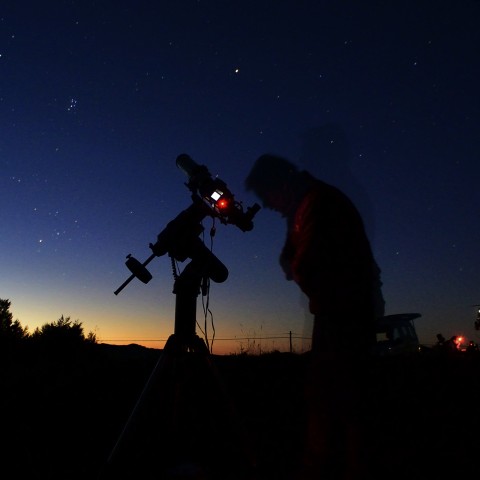
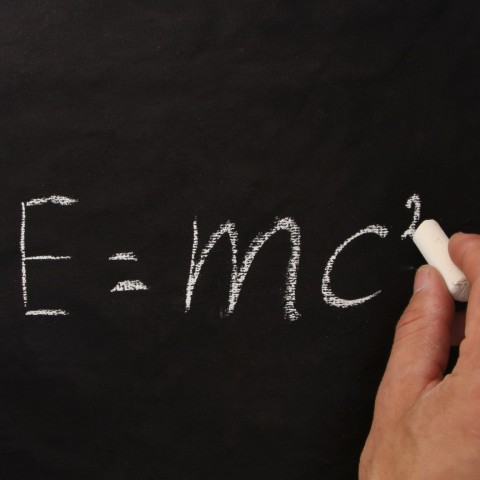








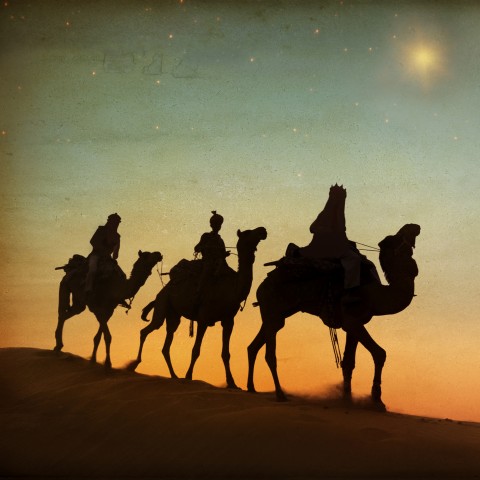
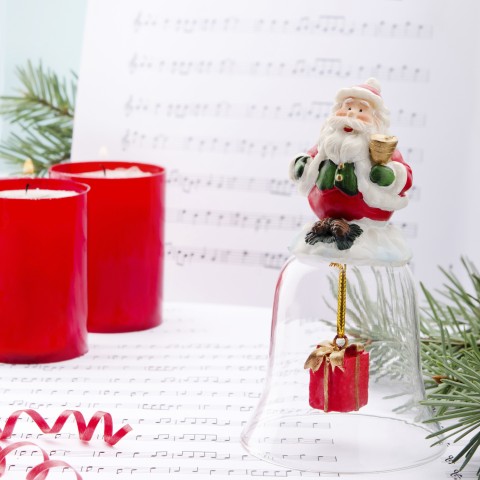
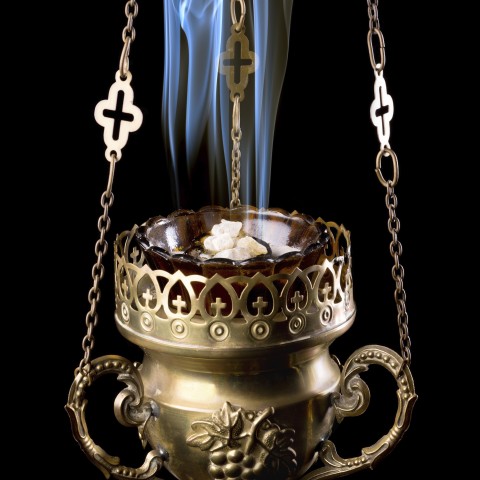






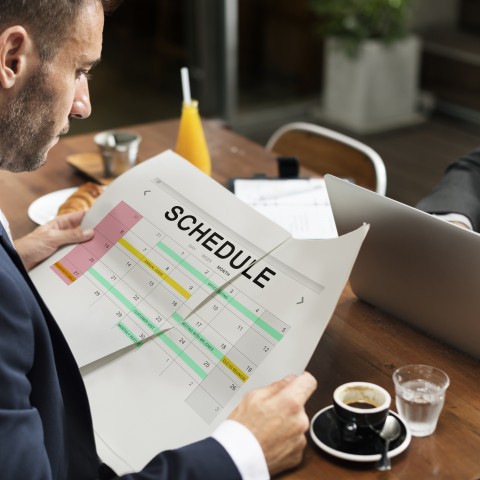
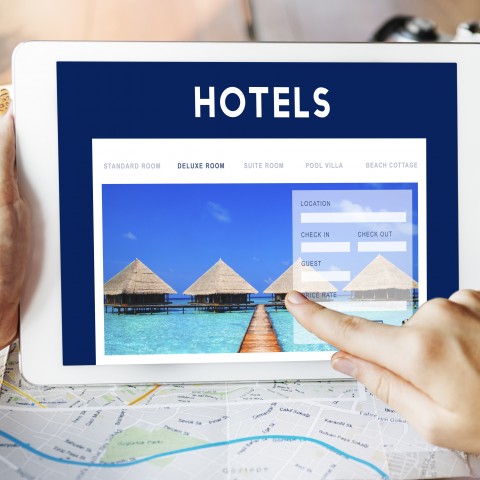






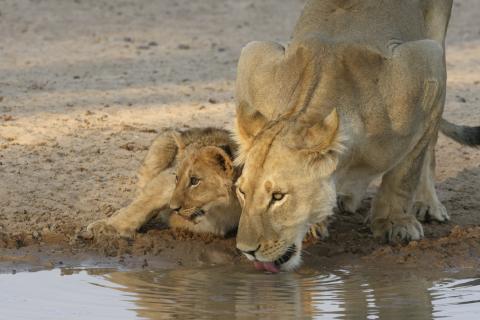



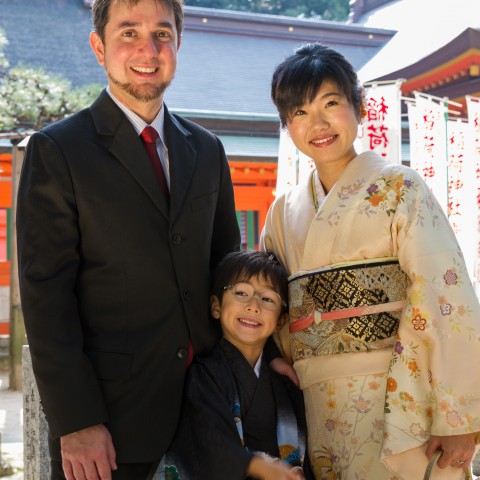



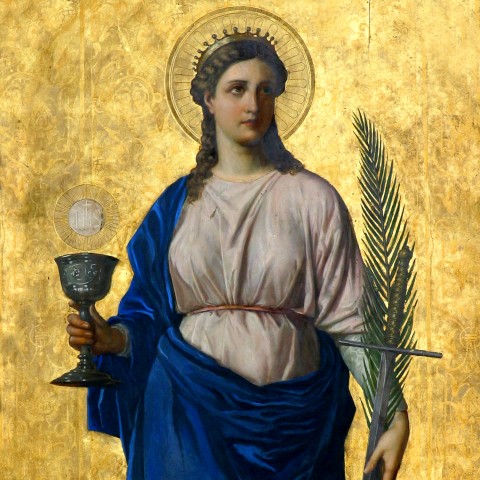
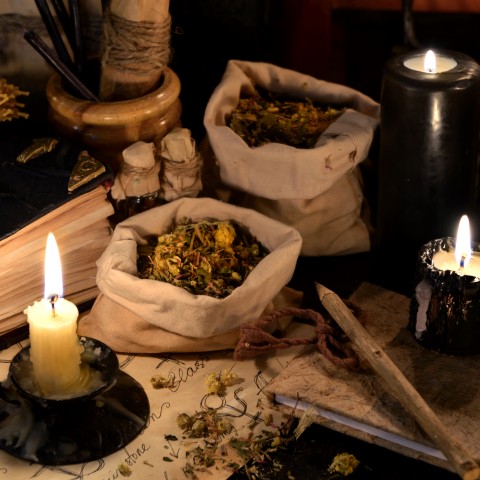


 Table of Contents
Table of Contents




